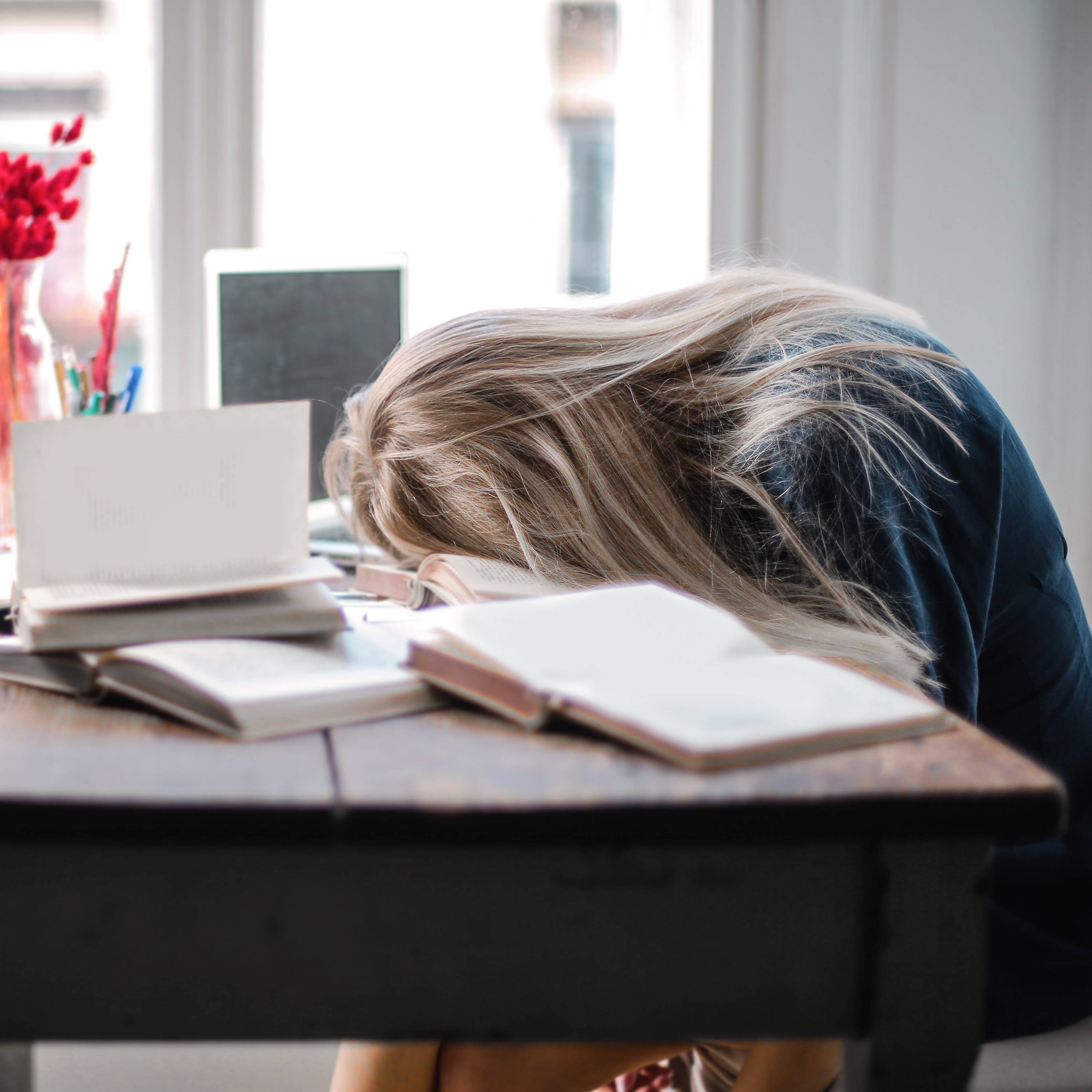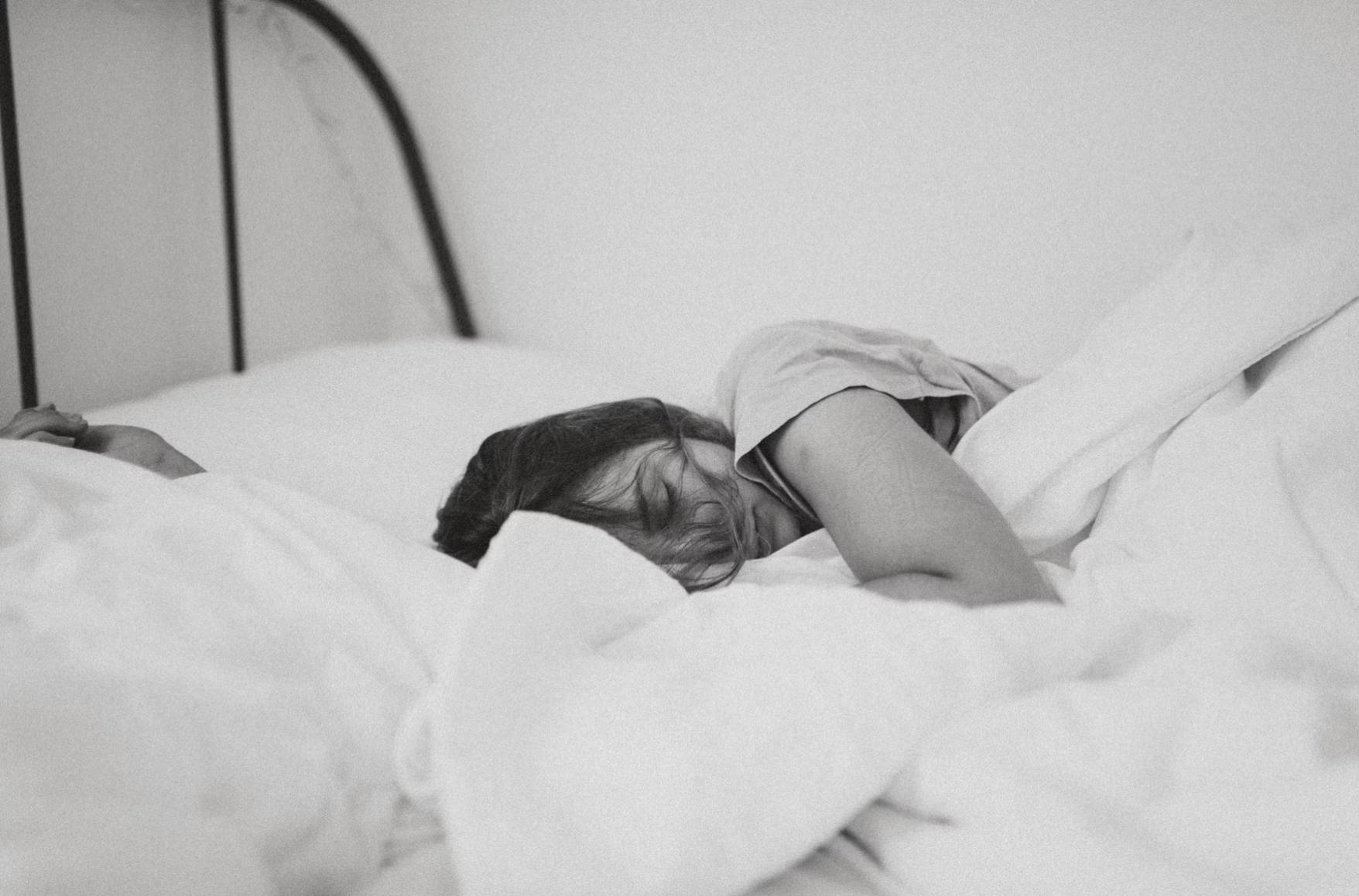
Goal 3: Good Health and Well-being
How To Manage Mental And Physical Exhaustion
It’s important to recognise stressors before they cause an extreme impact on your life.
By Sophie Bishop
14 July 2022
Ever felt completely overwhelmed and lacking energy? Unable to get out of bed in the morning, and never feeling fully rested? You may be experiencing exhaustion. This could be mental, physical, or a combination of both, resulting in you feeling drained and trapped.
Many people find that they feel powerless and that the cause of their exhaustion comes from external factors. But, there are some ways that you can manage physical and mental exhaustion and improve your overall wellbeing.
Signs of exhaustion

Exhaustion can cause several mental, physical and behavioural symptoms. Some sufferers experience all, or many of them, while others may only relate to a few. Similarly, some experience many at the same time, while for others it could be more gradual and symptoms could come and go.
That’s why it’s important to keep a note of any of these signs, and when they are happening, to see if you notice a pattern with particular stressors or situations. It can also help you to realise when you’re heading towards ‘burnout’, and tackle the triggers before you reach it!
Emotional and mental signs of exhaustion may include:
- Feelings of depression and/or anxiety
- Feelings of hopelessness or extreme pessimism
- A short temper, or even anger and aggression
- The feeling of dread or impending doom
- Lack of motivation and a decline in productivity
- Becoming easily distracted and having difficulty concentrating
Physical exhaustion could look like:
- Frequent headaches
- Upset stomach or changes to the digestive system (heartburn, indigestion)
- Body aches or becoming injured more easily (spraining muscles etc)
- Finding difficulty to stay awake or being unable to wake up
- Being unable to go to, or stay asleep (insomnia)
- Changes in appetite
- Weight gain or weight loss
- Weakened immune system, resulting in increased illness, such as colds and flu
You, or people around you, may notice changes in your behaviour as a symptom of exhaustion. Behavioural signs may include:
- Poor performance at work
- Avoiding social gatherings
- Calling in sick to work
What’s the difference between physical and mental exhaustion?
Physical and mental exhaustion are very closely linked. In fact, both can play a part, and be a side effect of the other. Both mental and physical exhaustion can trigger persistent fatigue and, if left unmanaged, can cause long-term implications. But, there are differences between them.
Physical exhaustion, as the name suggests, takes its toll on the physical body. This can mean that your body is experiencing stress that leaves you completely drained, and unable for your body to function properly. This could be a lack of energy and ability to perform basic, functional and practical tasks.
Tasks may seem more tedious and difficult than usual, and doing them may require more effort than you are able to give. It could be the type of fatigue that makes your body feel ‘heavy’, make it ache or even result in injuries. Physical exhaustion will not be relieved even after a seemingly restful sleep.
Mental exhaustion symptoms and effects are often more internal, and harder for others to see or understand. Mental exhaustion can impair physical performance and can make even simple tasks or exercise feel considerably more physically taxing and demanding, as well as having a whole host of other mental side effects.
Ways to manage exhaustion:
While you are often unable to completely stress-proof our lives, there are some ways that you can help to look after yourself, to impede impacts of this stress, and ultimately avoid physical and mental exhaustion.

Improve your sleeping habits.
When experiencing exhaustion, your sleep schedule can be impacted. This could mean you are sleeping too much, or not enough. So taking a look at your current sleeping patterns and learning about sleep hygiene could help. Improving the quality of your sleep can really help with your mental and physical health, and help to beat feeling exhausted.
From setting a perfect sleep scene in the run-up to bedtime (think calming scents, relaxing music and screen-free time), to practising self-hypnosis for sleep, getting a good night's sleep is one of the best ways to reduce exhaustion, and reclaiming some of the energy you feel you are lacking.
Rule out health conditions.
Some symptoms of exhaustion could actually indicate other, underlying health conditions. Feelings of mental exhaustion and having no energy could be a sign of things like diabetes, heart disease or thyroid issues.
Physical exhaustion signs could cross over with conditions like arthritis or sleep apnea. Similarly, as we mentioned, exhaustion can impact your digestive system, and cause changes to your bowel movements. This could be a sign of IBS, yet only 30% of people experiencing IBS symptoms consult a doctor.
It could be worth chatting with your doctor about your symptoms, as they may be able to rule out these conditions. Alternatively, it may lead to further diagnosis and treatment for a medical condition, that in turn addresses your exhaustion!

Level up your physical activity.
If you’re suffering from exhaustion, particularly physical exhaustion, the last thing on your mind may be exercise. But, making sure to fit in regular exercise could actually help to improve your overall energy levels.
Try low-impact activities, like yoga or swimming, a couple of times a week, and you may just see your overall tiredness improving.
Finally…
Mental and physical exhaustion can have a big impact on the quality and enjoyment of your life. So, it’s important to find ways that you can manage the signs and symptoms of exhaustion before they become a greater problem.
While we are unable to control all stressors and triggers around us, what we can do is build up our personal toolkit of ways to manage when things start to feel like it’s all too much. By focusing on self-care, in the form of a healthy sleeping schedule and gentle regular exercise, setting out a routine can really help to avoid extreme exhaustion and burn out.
Be sure to monitor your symptoms and always consult your doctor if you are concerned about exhaustion.
100% of profits from the sales of #TOGETHER products go to charities that advance the Sustainable Development Goals. Find out more here.



